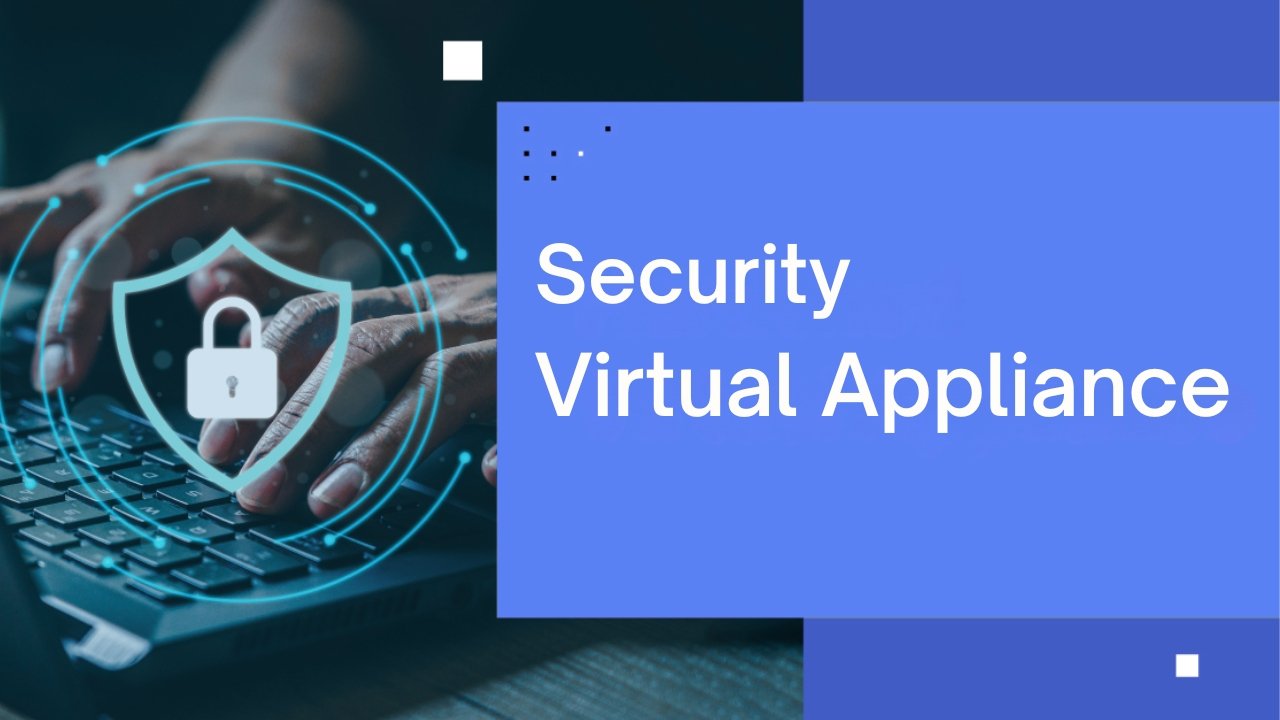In today’s fast-evolving virtual landscape, businesses must adapt to the growing threats posed by cybercriminals. One effective solution for enhancing cybersecurity is the use of a security virtual appliance. A security virtual appliance (SVA) is a software-based security solution that runs within a virtualized environment, providing robust protection against various online threats without the need for extra hardware. This blog explores the role of security virtual appliances in modern business environments, highlighting their benefits, features, and implementation strategies.
What is a Security Virtual Appliance?
A security virtual appliance is a pre-configured, ready-to-deploy security solution that operates within a virtualized infrastructure. Unlike traditional hardware-based security systems, an SVA runs within a virtual machine (VM), enabling businesses to streamline security operations and reduce the need for physical hardware. These appliances are often used for network security, intrusion detection, firewall protection, and data encryption. As more companies migrate to cloud environments, the role of security virtual appliances has become increasingly significant.
“The flexibility and scalability of virtual appliances allow businesses to customize their security posture to meet specific needs without compromising performance,”
explains Jane Doe, cybersecurity expert at CyberTech Solutions. This adaptability makes them an ideal solution for businesses of all sizes.
Key Features of Security Virtual Appliances
One of the primary advantages of using it is scalability. Virtual appliances allow organizations to scale their security systems without the physical limitations of traditional hardware. As your business grows, you can easily adjust the capacity of your virtual appliances to handle increased traffic or protect additional endpoints, all without the need for substantial infrastructure changes. This flexibility ensures that security measures can evolve alongside the growth of the business, ensuring continuous protection.
Cost Efficiency
Traditional security appliances often require hefty upfront investments in hardware and maintenance. In comparison, security virtual appliances provide a more cost-effective solution. Since they run on existing virtualized environments, businesses can avoid the costs associated with purchasing and maintaining physical devices. Additionally, virtual appliances can often be deployed faster, reducing the time required for setup and configuration.
Furthermore, cloud-based security virtual appliances help businesses avoid extra charges related to on-premise infrastructure, making them an attractive choice for companies looking to optimize their budgets.
Enhanced Security Posture
Security virtual appliances come pre-configured with advanced security features such as intrusion detection systems (IDS), firewalls, and content filtering. These features work together to create a robust defense against a wide range of cyber threats, including malware, ransomware, and unauthorized access attempts.
By running multiple layers of security in one virtual environment, businesses can ensure their networks are protected from both external and internal threats. Additionally, regular software updates and patches help keep virtual appliances up to date with the latest security features.
Simplified Management and Monitoring
Managing and monitoring security systems can be a daunting task for organizations, especially as network infrastructures become more complex. Security virtual appliances simplify this process by providing centralized management. This allows IT teams to monitor and control all security functions from a single interface, streamlining operations and reducing the workload.
Moreover, the ability to integrate with existing management tools further enhances the ease of use, ensuring that companies can efficiently monitor and respond to security events in real-time.
Rapid Deployment and Flexibility
Unlike traditional hardware-based security systems, security virtual appliances can be deployed quickly and efficiently. Virtual appliances are typically pre-configured with the necessary security protocols, allowing them to be up and running within minutes of deployment. This rapid deployment is especially useful for businesses that need to address security gaps quickly or scale their security operations during periods of high demand.
In addition, security virtual appliances can be easily moved between different virtual environments, offering businesses the flexibility to adapt to changing network configurations or cloud environments.
The Role of Security Virtual Appliances in Cloud Environments
As more businesses transition to the cloud, the demand for virtualized security solutions has skyrocketed. Cloud-based security virtual appliances allow companies to extend their security measures to virtual environments without relying on on-premise hardware. This is particularly important for companies that operate in hybrid or multi-cloud environments, where security needs to be adaptable to a variety of systems.
Cloud security appliances offer several benefits, including ease of integration, reduced latency, and the ability to scale up or down based on usage. By leveraging the power of the cloud, businesses can ensure that their security virtual appliances are always accessible and optimized for performance.
Security Virtual Appliances vs. Traditional Hardware Solutions
While both security virtual appliances and traditional hardware solutions aim to protect businesses from cyber threats, there are several key differences between the two. Security virtual appliances are typically more cost-effective, flexible, and easier to deploy than traditional hardware-based systems. They also require less physical space, making them ideal for companies with limited room for additional hardware.
However, traditional hardware solutions may still be preferred by businesses that require highly specialized security measures or those operating in environments with very high-security demands. The choice between security virtual appliances and hardware solutions depends on the unique needs and resources of each business.
Conclusion
In an age where cybersecurity is more important than ever, security virtual appliances provide businesses with a powerful, flexible, and cost-effective method to protect their digital assets. With key benefits such as scalability, cost-efficiency, enhanced security, and ease of management, security virtual appliances have become an essential component of modern IT infrastructures.
As businesses continue to embrace cloud environments and virtualized technologies, security virtual appliances will remain at the forefront of their cybersecurity strategies. By understanding the features and advantages of these appliances, organizations can make informed decisions about how to best defend their networks and data.
For businesses looking to optimize their cybersecurity posture while minimizing costs and complexity, investing in a security virtual appliance is a smart, forward-thinking decision.



